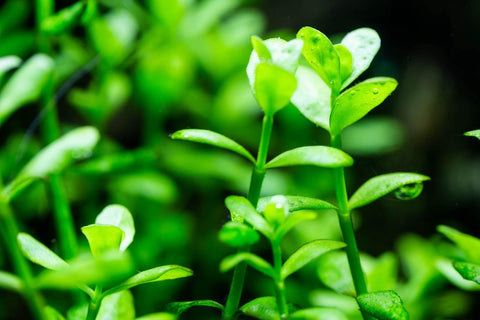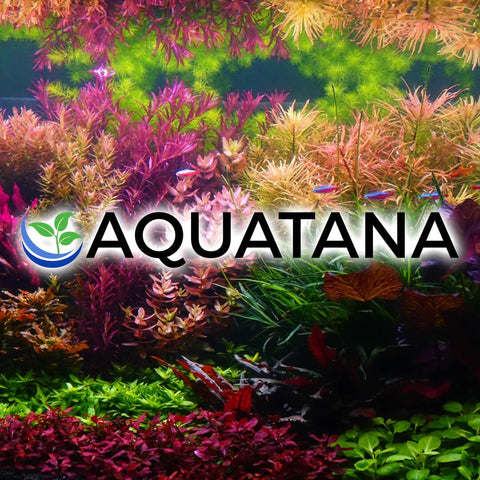If aquarium plants become mushy, this can be an indication of various problems. We would like to list some of the main causes of muddy plants in the aquarium in this blog post.
Frost damage
If you order aquarium plants in the cold winter period and the plants have been exposed to too low a temperature for too long, this can lead to frost damage to the aquarium plants. These plants often become mushy shortly after being placed in the aquarium and in some cases dissolve completely.
Solution: If you would like to order aquarium plants during the cold winter months, choose a supplier that specializes in shipping aquarium plants during the cold season. The right packaging during the cold season guarantees the safe arrival of your aquarium plants, even in cold temperatures.
Insufficient lighting
Light is a fundamental requirement for the growth and health of aquarium plants. Too little light can cause plants to weaken, lose their color and eventually become mushy. This is because plants need light for photosynthesis, the process by which they use light energy to convert carbon dioxide and water into food. Without sufficient light, plants cannot carry out this vital process effectively.
Solution: Ensure that your aquarium plants receive sufficient light. The amount of light required may vary depending on the plant species, but a good starting point is to provide 8 to 12 hours of lighting per day. If necessary, use stronger lighting or add additional light sources.
Nutrient deficiency
Aquarium plants require various nutrients for healthy growth, including but not limited to nitrogen, phosphorus, potassium and various micronutrients. A deficiency in one or more of these nutrients can lead to weak growth, yellowing leaves and mushy textures.
Solution: Regularly test the water for nutrients and adjust the fertilization accordingly. There are special aquarium fertilizers that provide a balanced mix of macro and micronutrients to ensure your plants get all the nutrients they need.
Poor water quality
The quality of the water in your aquarium has a significant impact on the health of your plants. High concentrations of pollutants such as ammonia, nitrite and nitrate can be toxic to plants and cause them to become mushy.
Solution: Carry out regular water changes and monitor the water parameters with test kits. Keep the aquarium clean and avoid overfeeding to minimize the accumulation of pollutants.
Inappropriate temperature
Aquarium plants, like all living things, have a preferred temperature range in which they thrive best. Temperatures that are too high or too low can cause stress, resulting in muddy plants.
Solution: Check the ideal temperature ranges for your specific plant species and make sure your aquarium stays within these limits. If necessary, use heaters or coolers to regulate the temperature.
Root rot
Root rot is a disease caused by poor conditions in the substrate, such as a lack of oxygen supply. Affected plants can start to become mushy as their roots are unable to absorb nutrients effectively
Solution: Make sure your aquarium bottom is not too dense. Avoid over-planting and ensure adequate circulation to increase oxygen levels.




Comments (0)
There are no comments for this article. Be the first one to leave a message!